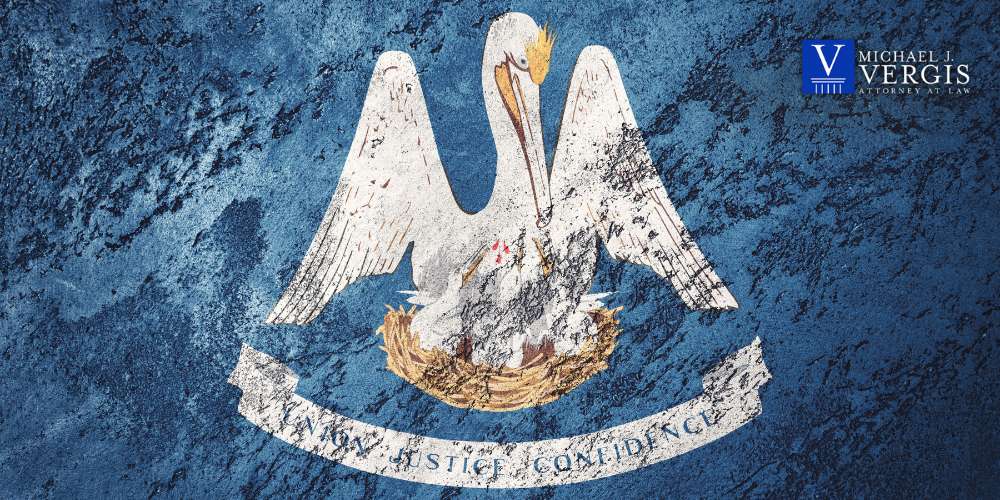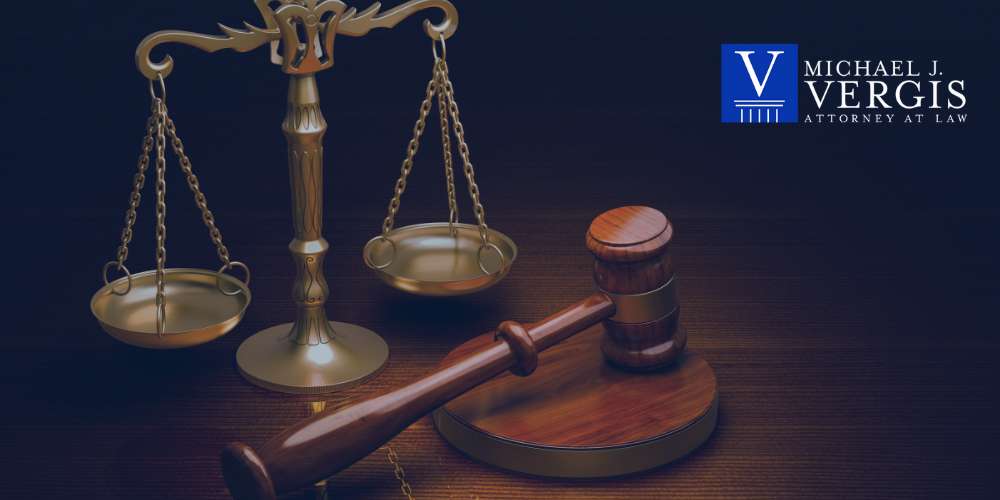Gwen’s Law represents a transformative approach to handling domestic violence cases across Louisiana. Under Gwen’s Law, Louisiana domestic abuse defendants undergo rigorous hearings that review each case with a strong focus on protecting victims while balancing the rights of the person charged. Attorney Michael J. Vergis, a seasoned criminal defense lawyer serving the Shreveport-Bossier City area, has successfully represented clients through these hearings by offering clear, strategic legal counsel tailored to each situation.
This law requires a careful evaluation of every detail before a bail decision is reached. Guaranteeing the safety of victims is prioritized, and each defendant’s rights receive due consideration. With a commitment to fairness and transparency in the legal process, Michael Vergis is well-equipped to assist those facing domestic violence charges in Louisiana.
For professional legal guidance on a domestic violence case and how Gwen’s Law may affect your rights, contact Michael J. Vergis, Attorney at Law, at (318) 698-3724 to secure the representation you need.
What is Gwen’s Law in Louisiana?
Article 313 of the Louisiana Code for Criminal Procedure, known more commonly as Gwen’s Law, was enacted in 2017. This law is named in memory of Gwen Cox Salley, a domestic violence victim whose tragic death emphasized the need for stricter bail laws. This law establishes special procedures for bail hearings in cases of domestic abuse, stalking, and violent felony offenses. When someone is charged with domestic abuse battery, violating protective orders in Louisiana, stalking, or a violent crime involving force against a family, household member, or dating partner, a bail hearing must take place within five days (excluding weekends and holidays).
At this hearing, the court reviews the defendant’s criminal history and any records of substance abuse, self-harm, or violent behavior to decide whether to release the defendant on bail or hold them in custody until trial. If there is clear evidence the defendant might flee or pose an imminent danger, bail may be denied. Alternatively, strict conditions—such as house arrest, curfews, or electronic monitoring—may be imposed if bail is granted. Similar procedures apply to sex offense cases involving a prior conviction and to capital offense charges, where bail is rarely allowed unless overwhelming evidence indicates otherwise.
With Gwen’s Law, Louisiana aims to protect domestic violence victims by requiring thorough risk assessments before granting bail to defendants accused of serious violent offenses.
Gwen’s Law History
In a tragic domestic violence case that rattled the community, Gwendolyn Cox Salley of Stonewall, LA, was killed by her estranged husband, Michael Salley. Three days before the tragedy, Michael was arrested for threatening to kill Gwendolyn in front of their 7-year-old daughter. Despite the gravity of the situation, he was released on a $50,000 bail less than 24 hours later. Shortly after his release, Michael kidnapped and murdered his estranged wife, an incident that exposed serious flaws in the domestic violence bail process.
In response, Gwen’s Law Louisiana was introduced in 2017 to protect domestic abuse victims by mandating thorough risk assessments before bail is granted. The law requires a contradictory bail hearing for cases involving domestic abuse battery, stalking, or other serious domestic violence charges, assuring factors such as a defendant’s criminal history, documented records of substance abuse or drug charges, and previous domestic abuse charges are meticulously reviewed. By requiring clear and convincing evidence before releasing an alleged offender on bail, the law aims to reduce the risk of further harm to family members and protect those at significant risk from domestic violence.

What Crimes Fall Under Gwen’s Law?
Gwen’s Law hearings are required when a defendant is charged with serious offenses related to domestic violence and other violent felony crimes in Louisiana. Before setting bail, the court thoroughly reviews the alleged offender’s background and risk factors to determine whether release could pose a significant threat to the alleged victim or the community. Offenses that trigger these hearings include:
- Domestic abuse battery
- Violation of protective orders
- Stalking
- Any felony offense involving the use or threatened use of force or a deadly weapon against a family member, household member, or dating partner
- Sex offenses when the defendant has been previously convicted of a similar crime
- Capital offenses where strong evidence indicates guilt
- Crimes involving serious bodily injury
- Offenses related to sexually inappropriate conduct, particularly those involving juvenile victims
This process ensures that bail decisions are based on a precise evaluation of potential risks, with the primary goal of protecting victims and maintaining public safety.
How Gwen’s Law Works in Louisiana
Under Gwen’s Law, a mandatory contradictory bail hearing (aka Gwen’s Law hearing) is required before setting bail pending trial for individuals charged with domestic abuse battery, violation of protective orders, stalking, or any felony offense involving the use or threatened use of force or a deadly weapon. During the Gwen’s Law hearing, the court examines the alleged offender’s criminal history and previous criminal record to assess whether the defendant poses a substantial risk of reoffending. Evidence related to controlled, dangerous substance abuse, participation in a pretrial drug testing program, or other mental health issues is also considered to determine if conditions should be applied before deciding whether to grant bail.
The contradictory hearing is held within five days of determining probable cause, ensuring bail decisions are made quickly to protect victims while balancing the rights of the accused. Based on their findings, the court may decide not to grant bail or may impose strict conditions—like electronic monitoring or house arrest—to lessen the risk.
Bail Restrictions Under Gwen’s Law
If the evidence suggests a substantial risk of reoffending or harming the alleged victim, judges can deny bail pending trial or, if bail is granted, impose strict conditions.
To reduce potential risks, judges may require the alleged offender’s voluntary participation in monitoring programs, such as GPS tracking through an electronic monitoring device, to closely track movements. Additional restrictions can include no-contact orders with the alleged victim and requirements for participation in mandatory counseling or treatment programs. These conditions aim to prevent alleged domestic violence offenders from committing similar offenses while maintaining a balance between public safety and the defendant’s legal rights.
Role of a Defense Attorney in Gwen’s Law Hearings
Securing skilled legal counsel is critical if you are facing a Gwen’s Law hearing and felony charges in Louisiana. Experienced criminal lawyers in Shreveport and Bossier City, like Michael J. Vergis, play a vital role in challenging the prosecution’s evidence in cases involving domestic abuse battery charges. For example, Attorney Vergis may examine police reports and medical records to dispute false or exaggerated allegations, proving that the alleged offender poses less risk than claimed. In other cases, he may demonstrate that the defendant has not been previously convicted and emphasize the defendant’s true character during a contradictory hearing, potentially building a strong case for reasonable bail.
A dedicated defense attorney also negotiates bail conditions that are fair and reasonable. By presenting solid evidence of the defendant’s reliability and reviewing whether the accused has been held prior in similar cases, he works to prevent unnecessary detention and argues for reasonable terms when posting bail. This approach helps ensure that the court sees the full context of the situation, rather than relying solely on accusations.
The urgency in these cases cannot be overstated. To understand Gwen’s Law and protect your rights during this critical process, you need an experienced Shreveport domestic violence attorney on your side as soon as possible. Contact Michael Vergis today.
Why Choose Michael Vergis for Your Shreveport Domestic Violence Defense?
If you are confronting a domestic violence offense and your freedom is at stake, you need legal counsel who understands every detail of criminal procedure and is ready to challenge all evidence against you. Michael Vergis has years of experience representing clients in domestic violence cases. He meticulously reviews your documented history and previous criminal record, while also evaluating statistical evidence prepared for your case. At every contradictory hearing, he presents convincing evidence to counter claims made by the prosecuting attorney prior to any bail decision.
Attorney Vergis is committed to crafting tailored defense strategies that address the unique circumstances of your case. His legal counsel is focused on reducing the risks associated with domestic abuse charges and making sure your voice is heard throughout the process. With a track record of success in domestic violence cases as well as other violent felony crimes, Michael Vergis is the advocate you need to secure a fair outcome.
When facing domestic violence charges in the Shreveport-Bossier City area, reach out immediately for the experienced representation that can make all the difference.

Contact Michael Vergis, Shreveport-Bossier City Criminal Defense Lawyer, Today
A Gwen’s Law hearing happens fast, and the outcome can change your future. Louisiana law requires courts to conduct hearings before granting bail in domestic violence cases, putting defendants in a difficult position from the start. Judges examine whether the alleged offender poses a significant threat to the alleged victim or the public, often relying on limited information. You could be held without bail without a strong defense, making it harder to fight the charges and prepare your case.
Shreveport/Bossier City criminal defense attorney Michael Vergis has extensive experience handling Gwen’s Law hearings and defending clients accused of domestic violence. He understands how Louisiana law applies in these cases and knows what it takes to challenge weak evidence, highlight inconsistencies, and fight for fair bail conditions. His approach focuses on protecting your rights and making sure the court gets the full picture—not just the accusations brought against you.
Every moment counts. Remember – a Gwen’s Law hearing happens quickly, and once a decision is made, it is difficult to reverse. Do not face this process alone. Contact Michael J. Vergis by calling (318) 698-3724 or reach out online to schedule a consultation today.



